EP 836 Obesity Inhibitors: A Breakthrough in Medicine
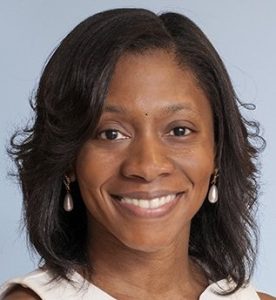 For the first time in a decade, adult obesity in the United States dropped last year, according to a new study and researchers are continuing to determine the role that the dramatic rise in popularity of weight loss drugs, like Ozempic, Wegovy and Zepbound, has to do with that trend. Before 2023, between 2013-2022, obesity numbers were on an uphill trajectory. They plateaued in 2022 before taking a slight dip south. It’s all good news considering the fact that obesity puts individuals at risk for heart disease and is often associated with high blood pressure, high cholesterol and diabetes. Dr. Fatima Cody Stanford, an obesity medicine specialist at Massachusetts General Hospital and Harvard Medical School, has a deep understanding of the causes and effects of obesity and the impact these anti-obesity medications are having on patients. She shares her knowledge regarding the GLP-1, or glucagon-like peptide-1, receptor agonists, first used to treat diabetes, which now are the same drugs approved for people with obesity, as well as others that are now being prescribed to many in our society whose weight issues have a profound impact on their overall health.
For the first time in a decade, adult obesity in the United States dropped last year, according to a new study and researchers are continuing to determine the role that the dramatic rise in popularity of weight loss drugs, like Ozempic, Wegovy and Zepbound, has to do with that trend. Before 2023, between 2013-2022, obesity numbers were on an uphill trajectory. They plateaued in 2022 before taking a slight dip south. It’s all good news considering the fact that obesity puts individuals at risk for heart disease and is often associated with high blood pressure, high cholesterol and diabetes. Dr. Fatima Cody Stanford, an obesity medicine specialist at Massachusetts General Hospital and Harvard Medical School, has a deep understanding of the causes and effects of obesity and the impact these anti-obesity medications are having on patients. She shares her knowledge regarding the GLP-1, or glucagon-like peptide-1, receptor agonists, first used to treat diabetes, which now are the same drugs approved for people with obesity, as well as others that are now being prescribed to many in our society whose weight issues have a profound impact on their overall health.
Podcast: Play in new window | Download
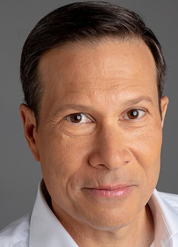 To say that there is a chill in the air at FBI HQ, and its field offices, is an understatement. Perhaps I should call HQ the future “Museum of the Deep State” on day one if Kash Patel is confirmed as its director, as he’s said publicly. Between firings, exposure of agents, analysts and others involved in the Trump and January 6 investigations, and Trump loyalists occupying the 7th floor of the executive suites of the FBI, it is hard to imagine how vigorously wrong doers in America and our foreign enemies are celebrating when they see the confusion, chaos and morale destruction at play. Breaking it all down for us is Frank Figliuzzi a former assistant director for counterintelligence at the FBI, where he served 25 years as a special agent and directed all espionage investigations across the government. He is the author of “The FBI Way: Inside the Bureau’s Code of Excellence.” Imagine this, and it’s not a Hollywood screenwriter’s fantasy, careerists at the FBI have filed two lawsuits against the Department of Justice, the agency that the FBI reports to. If you don’t think our safety and security is on the line, please listen to this podcast.
To say that there is a chill in the air at FBI HQ, and its field offices, is an understatement. Perhaps I should call HQ the future “Museum of the Deep State” on day one if Kash Patel is confirmed as its director, as he’s said publicly. Between firings, exposure of agents, analysts and others involved in the Trump and January 6 investigations, and Trump loyalists occupying the 7th floor of the executive suites of the FBI, it is hard to imagine how vigorously wrong doers in America and our foreign enemies are celebrating when they see the confusion, chaos and morale destruction at play. Breaking it all down for us is Frank Figliuzzi a former assistant director for counterintelligence at the FBI, where he served 25 years as a special agent and directed all espionage investigations across the government. He is the author of “The FBI Way: Inside the Bureau’s Code of Excellence.” Imagine this, and it’s not a Hollywood screenwriter’s fantasy, careerists at the FBI have filed two lawsuits against the Department of Justice, the agency that the FBI reports to. If you don’t think our safety and security is on the line, please listen to this podcast.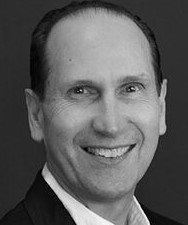 Our memories may be a bit foggy about what brought on the Great Recession of 2008, the worst American economic crisis since the Great Depression. Even George W. Bush, then president, asked his Treasury Secretary, Hank Paulson, to explain to him what went on and how it occurred. In his book, “2008: What Really Happened: Understanding the Great Financial Crisis”, our guest Todd Sheets did a deep dive, with much empirical data to support it, to explain its origins. In his analysis it was not so much the deregulation of financial markets, but rather the role of Fannie Mae and Freddie Mac encouraging middle class and low- income people to get into homes using instruments like variable rate mortgages, along with the easy money policies of the Federal Reserve that brought on a housing bubble like none this nation had ever experienced before. When the bubble burst all types of lenders had bad paper on their books, a crisis ensued, followed by panic. Clearly, these institutions from commercial banks to investment banks and their policies played a role in this, as well, Sheets reminds us. It’s a complicated story that deserves a better autopsy if for no other reason than our desire not to repeat its mistakes.
Our memories may be a bit foggy about what brought on the Great Recession of 2008, the worst American economic crisis since the Great Depression. Even George W. Bush, then president, asked his Treasury Secretary, Hank Paulson, to explain to him what went on and how it occurred. In his book, “2008: What Really Happened: Understanding the Great Financial Crisis”, our guest Todd Sheets did a deep dive, with much empirical data to support it, to explain its origins. In his analysis it was not so much the deregulation of financial markets, but rather the role of Fannie Mae and Freddie Mac encouraging middle class and low- income people to get into homes using instruments like variable rate mortgages, along with the easy money policies of the Federal Reserve that brought on a housing bubble like none this nation had ever experienced before. When the bubble burst all types of lenders had bad paper on their books, a crisis ensued, followed by panic. Clearly, these institutions from commercial banks to investment banks and their policies played a role in this, as well, Sheets reminds us. It’s a complicated story that deserves a better autopsy if for no other reason than our desire not to repeat its mistakes.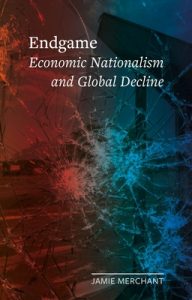 Our guest today suggests that globalization as we know it may be over, closing the books on a significant chapter in modern economic history and an interconnected world order. Industrial policies dismissed as obsolete for decades are being embraced once again by governments worldwide. Could that be the reason that geopolitical tensions are rising? Jamie Merchant traces the roots of this change and economic decline around the globe in the book, “Endgame: Economic Nationalism and Global Decline.” He argues that the greatest political and economic changes of the last decade are due not to globalization but to long-term decay of the market-based economic order. No matter how you look at it the period ahead, with interdependence coming undone, is going to be unsettling or as he says ‘weird’. Even Senator Mitch McConnell recently said that an America First policy, somewhat apart from the economic global order and institutions America built after WWII to keep order, is reminiscent of calls for go it alone policies in the 1930’s. Very unsettling, indeed.
Our guest today suggests that globalization as we know it may be over, closing the books on a significant chapter in modern economic history and an interconnected world order. Industrial policies dismissed as obsolete for decades are being embraced once again by governments worldwide. Could that be the reason that geopolitical tensions are rising? Jamie Merchant traces the roots of this change and economic decline around the globe in the book, “Endgame: Economic Nationalism and Global Decline.” He argues that the greatest political and economic changes of the last decade are due not to globalization but to long-term decay of the market-based economic order. No matter how you look at it the period ahead, with interdependence coming undone, is going to be unsettling or as he says ‘weird’. Even Senator Mitch McConnell recently said that an America First policy, somewhat apart from the economic global order and institutions America built after WWII to keep order, is reminiscent of calls for go it alone policies in the 1930’s. Very unsettling, indeed.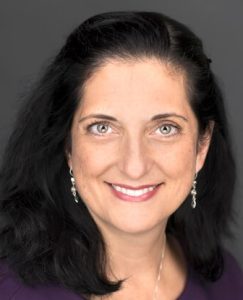 As if our healthcare delivery system doesn’t have enough problems, wherever it is located, but often those concerns pale in comparison to the needs of folks who live a distance from metropolitan centers. Hospitals are closing at an unhealthy clip in rural areas and the types of care within others is limited by the availability of doctors and other professionals. Then, of course, there are other barriers to care, including transportation issues, health literacy, and the inability to deal with the behavioral health needs of the population. This is all a prescription for lower life expectancies and generally sub-par outcomes. Dr. Traci Marquis-Eydman, our guest, is an associate Professor of Medical Sciences at Quinnipiac University in Connecticut. She is also a family physician and an advocate for primary care and healthcare equity for rural and underserved populations. She has helped to put a focus on the needs of rural populations at the University, given her experiences in northern Maine.
As if our healthcare delivery system doesn’t have enough problems, wherever it is located, but often those concerns pale in comparison to the needs of folks who live a distance from metropolitan centers. Hospitals are closing at an unhealthy clip in rural areas and the types of care within others is limited by the availability of doctors and other professionals. Then, of course, there are other barriers to care, including transportation issues, health literacy, and the inability to deal with the behavioral health needs of the population. This is all a prescription for lower life expectancies and generally sub-par outcomes. Dr. Traci Marquis-Eydman, our guest, is an associate Professor of Medical Sciences at Quinnipiac University in Connecticut. She is also a family physician and an advocate for primary care and healthcare equity for rural and underserved populations. She has helped to put a focus on the needs of rural populations at the University, given her experiences in northern Maine. Americans consume a disproportionate amount of the illegal, and deadly, drugs in the world. Our guest on this podcast is well equipped to provide a nuanced response to why that is. The story of the fentanyl crisis is heartbreaking and should disturb each of us. The toll of death and destruction left in its wake is disorienting. Imagine a drug that is 50 times more potent than heroin and 100 times stronger than morphine. That’s fentanyl. It is the leading cause of the death for those 18 to 45 years old in our country. Again, it’s fentanyl. A drug in which just the equivalent of 3 grains of salt can kill you. You guessed it. Fentanyl. Dr. Robert Marbut, Jr., our guest on today’s podcast is a national expert on fentanyl. He is also known for his work on homelessness. For the purposes of this podcast we turn to him as Senior Producer of the compelling new documentary, “Fentanyl: Death Incorporated” that delves into the multifaceted aspects of this dangerous synthetic drug and the ways it is being used on the streets of America. The documentary introduces you to experts in international and domestic supply chains, law enforcement, medicine, harm reduction and more. His presentation is riveting, eye opening and shocking.
Americans consume a disproportionate amount of the illegal, and deadly, drugs in the world. Our guest on this podcast is well equipped to provide a nuanced response to why that is. The story of the fentanyl crisis is heartbreaking and should disturb each of us. The toll of death and destruction left in its wake is disorienting. Imagine a drug that is 50 times more potent than heroin and 100 times stronger than morphine. That’s fentanyl. It is the leading cause of the death for those 18 to 45 years old in our country. Again, it’s fentanyl. A drug in which just the equivalent of 3 grains of salt can kill you. You guessed it. Fentanyl. Dr. Robert Marbut, Jr., our guest on today’s podcast is a national expert on fentanyl. He is also known for his work on homelessness. For the purposes of this podcast we turn to him as Senior Producer of the compelling new documentary, “Fentanyl: Death Incorporated” that delves into the multifaceted aspects of this dangerous synthetic drug and the ways it is being used on the streets of America. The documentary introduces you to experts in international and domestic supply chains, law enforcement, medicine, harm reduction and more. His presentation is riveting, eye opening and shocking.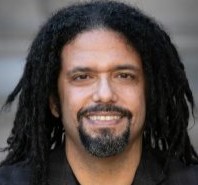 While we may attend games at stadiums, the way in which these cavernous facilities are erected, located, financed and owned is serious business. They represent the epicenter of many cities and have over the years reflected the cultural changes going on in our society. They have also hosted a range of activities beyond the sporting and entertainment events generally considered their sole domain. Home to political rallies, protests, awakenings, as well as charlatans and hucksters, they reflect the strengths and weaknesses inherent in the pendulum of democracy. The 21st century stadiums and arenas are being erected at a record pace and like the second Gilded Age which we are experiencing, they are gaudy, high tech and domains that cater to the wealthy strata of our society with sky boxes and private corporate suites. You will never think about these facilities in the same way once you read Frank Andre Guridy’s much acclaimed book “The Stadium: An American History of Politics, Protest and Play.” He is our guest on today’s podcast.
While we may attend games at stadiums, the way in which these cavernous facilities are erected, located, financed and owned is serious business. They represent the epicenter of many cities and have over the years reflected the cultural changes going on in our society. They have also hosted a range of activities beyond the sporting and entertainment events generally considered their sole domain. Home to political rallies, protests, awakenings, as well as charlatans and hucksters, they reflect the strengths and weaknesses inherent in the pendulum of democracy. The 21st century stadiums and arenas are being erected at a record pace and like the second Gilded Age which we are experiencing, they are gaudy, high tech and domains that cater to the wealthy strata of our society with sky boxes and private corporate suites. You will never think about these facilities in the same way once you read Frank Andre Guridy’s much acclaimed book “The Stadium: An American History of Politics, Protest and Play.” He is our guest on today’s podcast. Bad customer experiences are costing businesses more than ever, according to new research by experience management company Qualtrics. Its work projects global losses of $3.7 trillion annually–a staggering 19 percent increase from last year’s $3.1 trillion projection. You don’t need to see the macro picture when daily you suffer the frustrating indignities of calls to businesses not answered by a person on the other end who knows what they are talking about or the inability to ever get to that ill-informed person in the first place because the automated attendant won’t let you through. It can be maddening as a consumer. Michael Levine, the author of the influential business book “Broken Windows, Broken Business” saw this trend developing almost 20 years ago and has been writing about it ever since. The smallest things he notes can make the biggest difference in the success of a company. For example, if the cabin of an airplane is dirty, it makes you wonder whether the mechanical part of the plane is actually being attended to with care. Yikes! It’s the basis for a fun and wide- ranging discussion today.
Bad customer experiences are costing businesses more than ever, according to new research by experience management company Qualtrics. Its work projects global losses of $3.7 trillion annually–a staggering 19 percent increase from last year’s $3.1 trillion projection. You don’t need to see the macro picture when daily you suffer the frustrating indignities of calls to businesses not answered by a person on the other end who knows what they are talking about or the inability to ever get to that ill-informed person in the first place because the automated attendant won’t let you through. It can be maddening as a consumer. Michael Levine, the author of the influential business book “Broken Windows, Broken Business” saw this trend developing almost 20 years ago and has been writing about it ever since. The smallest things he notes can make the biggest difference in the success of a company. For example, if the cabin of an airplane is dirty, it makes you wonder whether the mechanical part of the plane is actually being attended to with care. Yikes! It’s the basis for a fun and wide- ranging discussion today.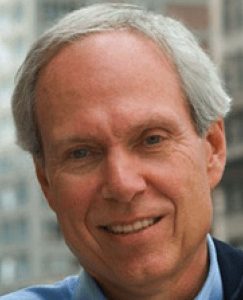
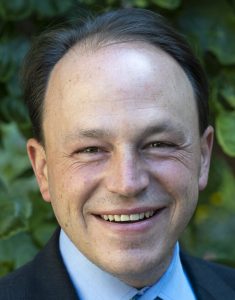 Once the party of the working class, the Democratic Party is now the home of highly educated citizens with progressive social views who prefer credentialed experts to make policy decisions, while Republicans have become the populist champions of white voters who increasingly distrust scientists, journalists, universities, Hollywood, and even corporations. The result of this new ‘diploma divide’ is the most consequential transformation in American politics since the New Deal realignment back in the 1930’s. Well into the 1980’s, as Ronald Reagan took the Southern strategy to new regions of the country, Democrats could count on the members of organized labor to back their party. Cultural shifts, perhaps even more than economic ones, ended their dominance. Our guest, Matt Grossmann, along with David Hopkins have written a book that explains the change. It’s called “Polarized by Degrees: How the Diploma Divide and the Culture War Transformed American Politics.”
Once the party of the working class, the Democratic Party is now the home of highly educated citizens with progressive social views who prefer credentialed experts to make policy decisions, while Republicans have become the populist champions of white voters who increasingly distrust scientists, journalists, universities, Hollywood, and even corporations. The result of this new ‘diploma divide’ is the most consequential transformation in American politics since the New Deal realignment back in the 1930’s. Well into the 1980’s, as Ronald Reagan took the Southern strategy to new regions of the country, Democrats could count on the members of organized labor to back their party. Cultural shifts, perhaps even more than economic ones, ended their dominance. Our guest, Matt Grossmann, along with David Hopkins have written a book that explains the change. It’s called “Polarized by Degrees: How the Diploma Divide and the Culture War Transformed American Politics.”